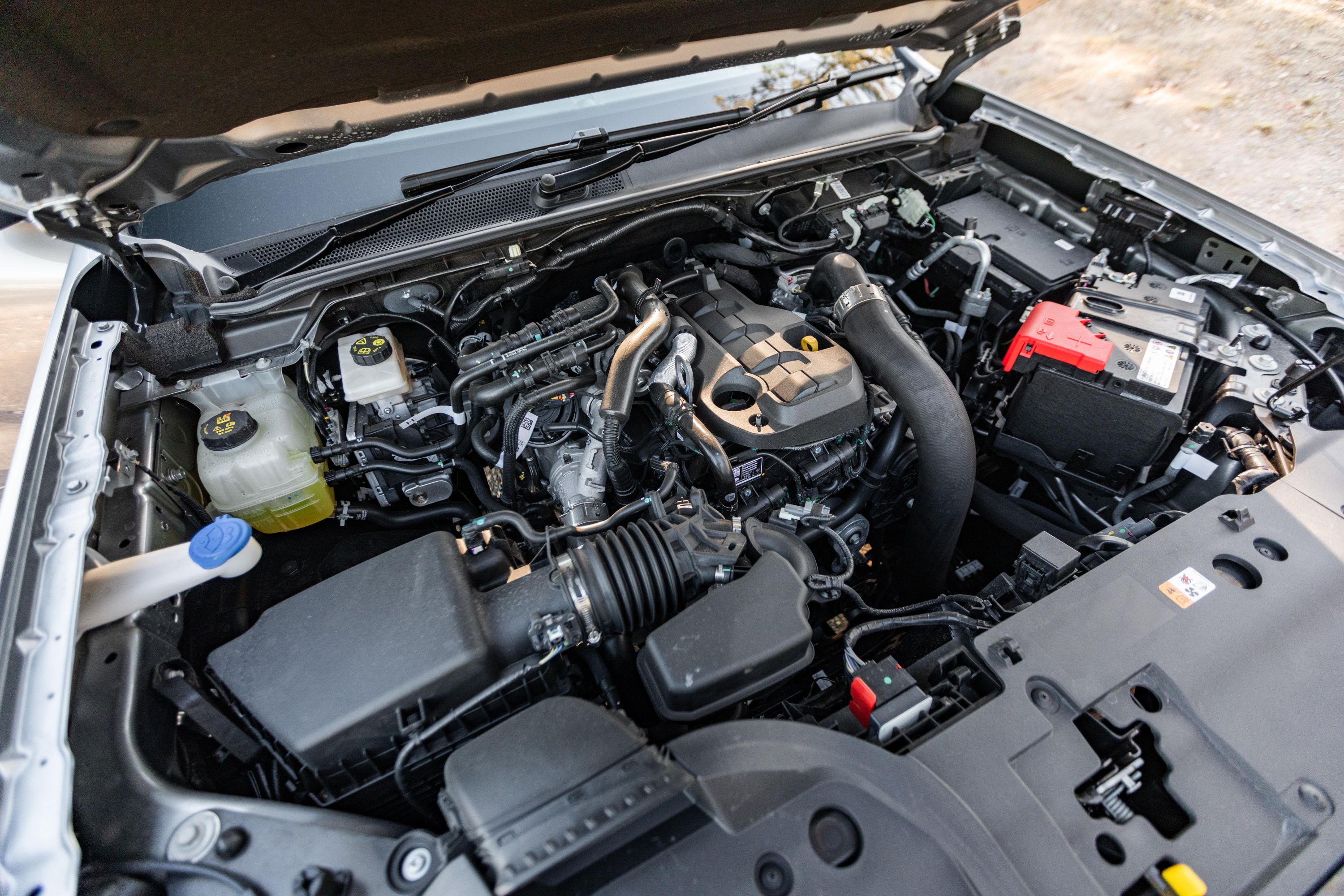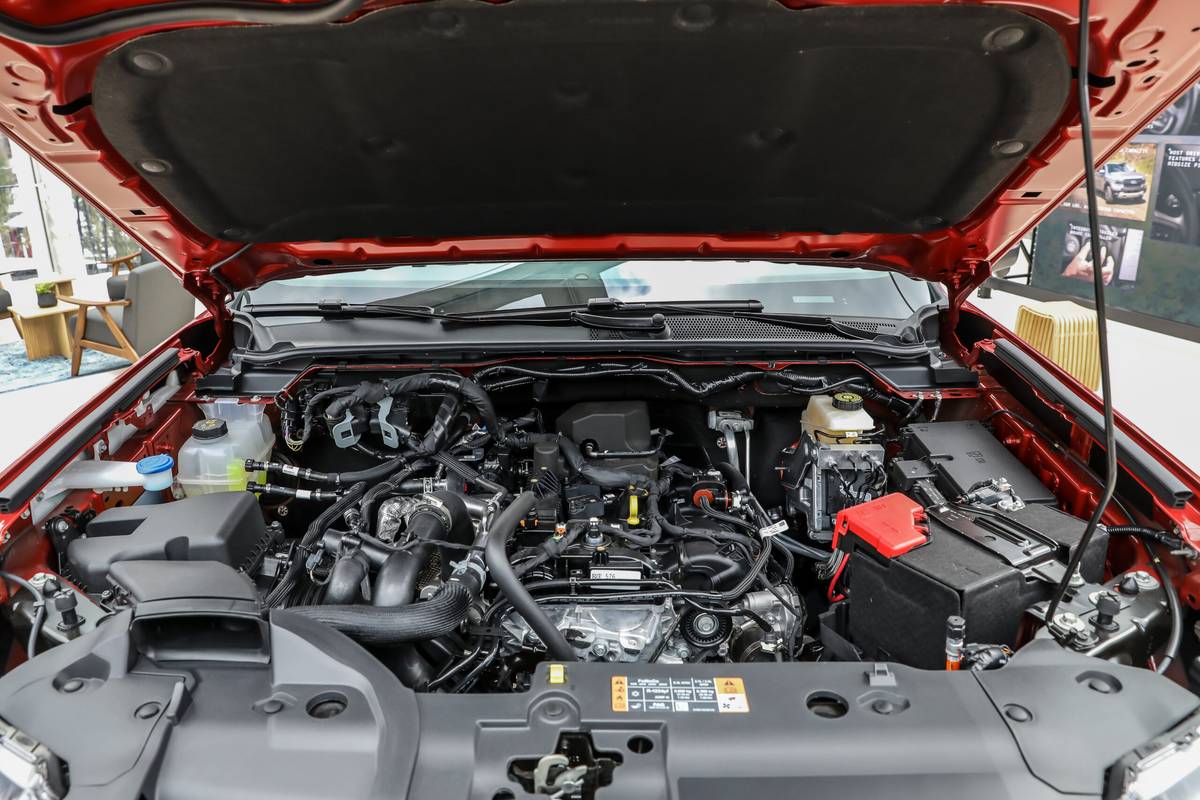How to Maintain and Optimize the 2.2 Ford Ranger Engine for Long-Lasting Performance
How to Maintain and Optimize the 2.2 Ford Ranger Engine for Long-Lasting Performance
Blog Article
What Makes a Cars And Truck Engine Run Efficiently: Top Tips for Optimum Care
The smooth procedure of a vehicle engine is basic to both performance and durability, making ideal care an essential obligation for car proprietors. What certain steps should you prioritize to ensure your engine stays in peak condition?
Normal Oil Changes
Among one of the most critical elements of automobile upkeep is ensuring your engine receives regular oil modifications. Engine oil lubricates inner parts, minimizes friction, and assists maintain optimal operating temperature levels. Over time, oil weakens due to heat, impurities, and the all-natural by-products of combustion, leading to minimized efficiency and potential engine damage.
A lot of makers suggest altering the oil every 5,000 to 7,500 miles, however this interval can vary based on driving conditions and oil kind. Synthetic oils might permit for longer intervals in between changes. Regular oil changes not just enhance engine performance but likewise improve gas effectiveness, as clean oil advertises smoother procedure.
Ignoring oil modifications can result in sludge build-up, which harms flow and can lead to severe engine problems. It is important to inspect oil degrees regularly and keep track of for any kind of unusual adjustments in color or consistency, which could show contamination or destruction.

Keeping Coolant Degrees
Maintaining appropriate coolant degrees is crucial for stopping engine getting too hot and guaranteeing optimum efficiency. The coolant, typically a blend of water and antifreeze, circulates with the engine, soaking up warmth and protecting against thermal stress. Insufficient coolant can bring about boosted engine temperatures, which may trigger extreme damage and even complete engine failing.
To preserve ideal coolant degrees, on a regular basis examine the coolant tank, typically situated in the engine bay. Ensure the coolant is loaded to the advised mark, as suggested in your car's owner manual. It is advisable to check the levels at least when a month or previously lengthy trips, specifically throughout extreme weather.
If you discover that the coolant degree is regularly reduced, there may be a leakage in the air conditioning system, which ought to be dealt with promptly to stop additional difficulties. 2.2 ford ranger engine. In addition, flushing the coolant system every 2 to 3 years can assist remove any kind of collected debris and make sure reliable heat exchange
Monitoring Air Filters

It is suggested to examine the air filter every 12,000 to 15,000 miles, or more frequently if driving in damaging or dirty conditions. A simple visual inspection can commonly disclose whether the filter is filthy or damaged. It needs to be replaced immediately. if the filter appears stained or has visible dirt buildup.
Using a top notch air filter made for your particular car model can even more enhance engine efficiency. Furthermore, some cars may profit from multiple-use filters that can be cleansed and reinstalled, giving a cost-efficient and environmentally pleasant option.
Inspecting Spark Plugs
Ignition system are essential components of a car's ignition system, straight influencing engine efficiency and efficiency. They create the spark that sparks the air-fuel blend in the burning chamber, assisting in the engine's power generation. Regular examination of stimulate plugs is critical for maintaining optimum engine function and preventing potential concerns.
During an assessment, look for indicators of wear or damage, such as splits, carbon accumulation, or excessive void widening. A healthy ignition system typically shows a light brown or tan color. Dark residue or oil down payments can indicate inappropriate combustion, while a blistered or white look might recommend overheating. Both conditions call for immediate focus to stop further engine damage.
It's recommended to check ignition system every 30,000 miles, or as advised in your vehicle's owner manual. Additionally, think about changing them according to the maker's standards, as worn or old ignition system can cause misfires, lowered fuel efficiency, and increased discharges.
Tracking Tire Stress
Making sure correct tire pressure is an essential aspect of useful site automobile security and efficiency. Under-inflated tires can bring about decreased fuel effectiveness, raised tire wear, and jeopardized handling. Alternatively, over-inflated tires can decrease grip and increase the danger of blowouts. Routine tracking of tire stress is important for optimal automobile operation.
Tire pressure must be examined at the very least when a month and in the past long journeys. Make use of a reputable tire stress scale to measure the pressure when the tires are chilly, ideally before the vehicle has been driven for a minimum of 3 hours. Describe the automobile's owner guidebook or the placard located on the driver's side door jamb for the maker's suggested pressure degrees.
It is crucial to note that tire stress can rise and fall with adjustments in temperature level; a drop of 10 ° F can result in a 1-2 psi reduction in pressure. In addition, aesthetically examine tires for any kind of signs of wear or damage throughout your monitoring routine. Maintaining proper tire stress not just boosts car safety and security yet also improves fuel performance and lengthens tire life, inevitably contributing to a smoother engine performance.
Final Thought
In conclusion, preserving a car engine's smooth procedure calls for diligent interest to several key factors. Normal oil changes, proper coolant levels, clean air filters, well-maintained stimulate plugs, and optimal tire stress collectively add to boosted efficiency and longevity. Complying with these maintenance practices not just boosts gas performance however likewise advertises a more secure driving experience. Ultimately, a proactive approach to engine care is essential for making sure integrity and capability in time. 2.2 ford ranger engine.
One of the most essential facets of auto maintenance is guaranteeing your engine obtains normal oil changes. Engine oil lubes inner parts, reduces friction, and helps preserve ideal operating temperatures. Normal oil changes not only enhance engine efficiency however likewise improve gas efficiency, as clean oil advertises smoother procedure.
Inadequate coolant can you can look here lead to boosted engine temperature levels, which might create serious damage or also total engine failing.

Report this page